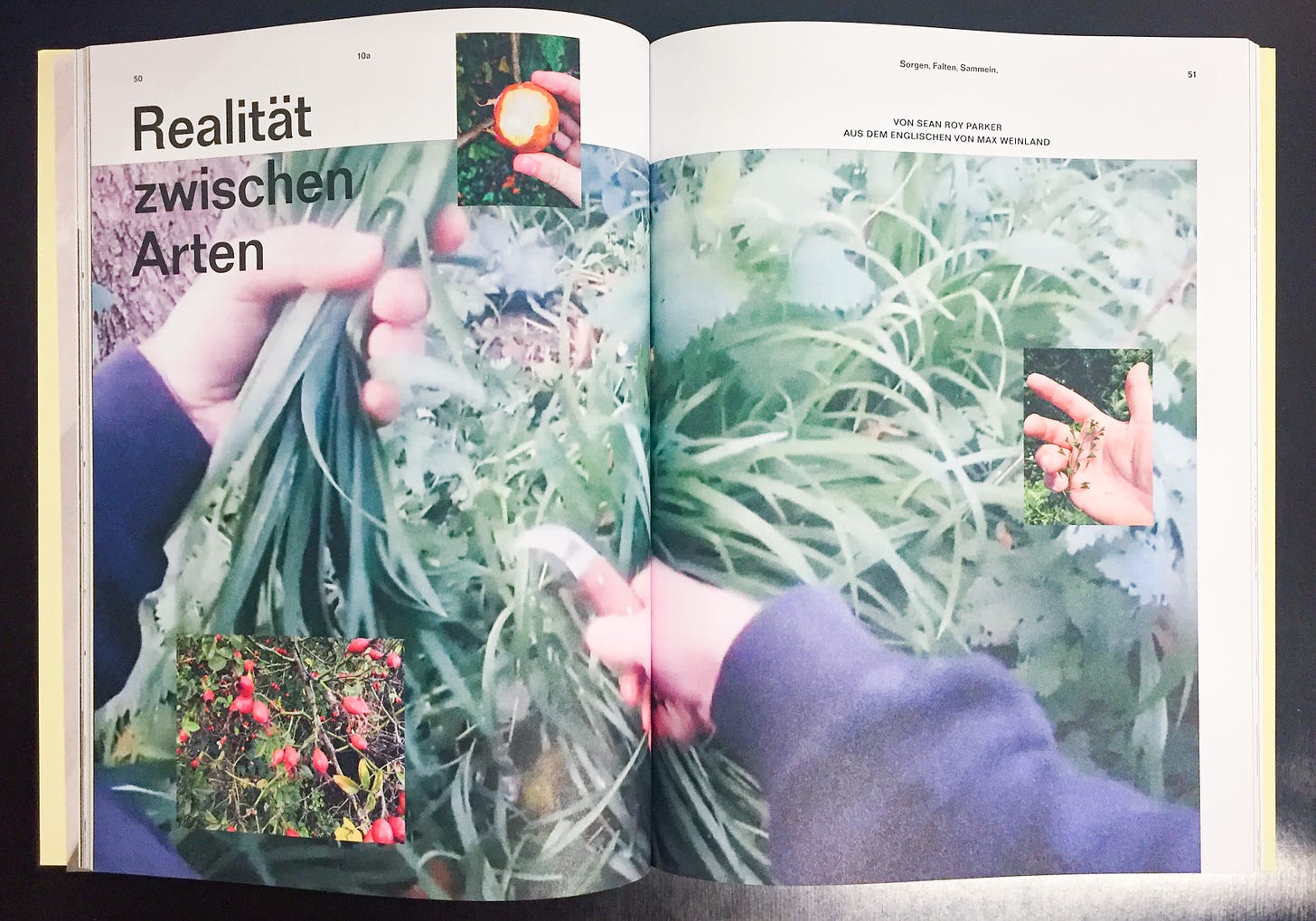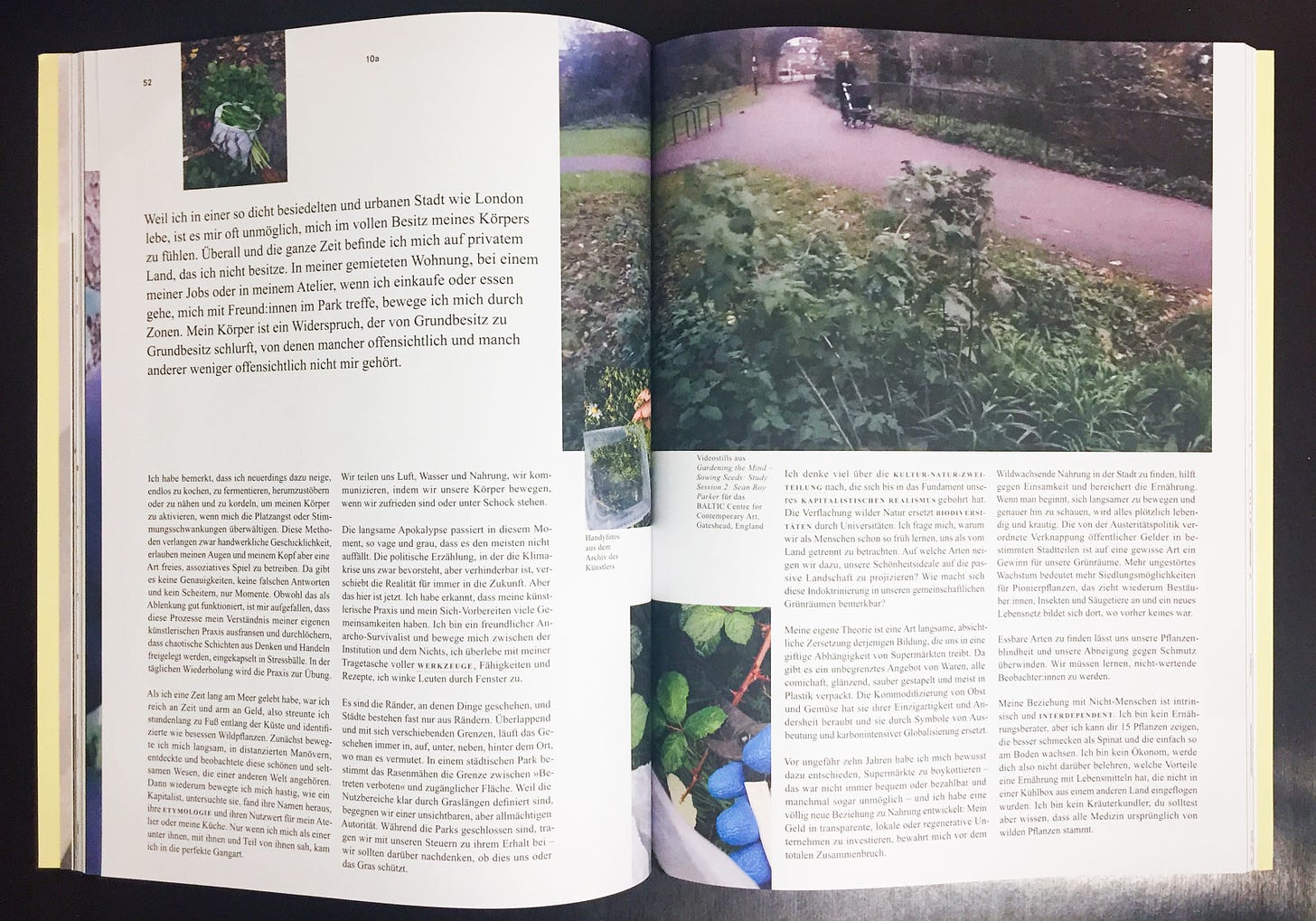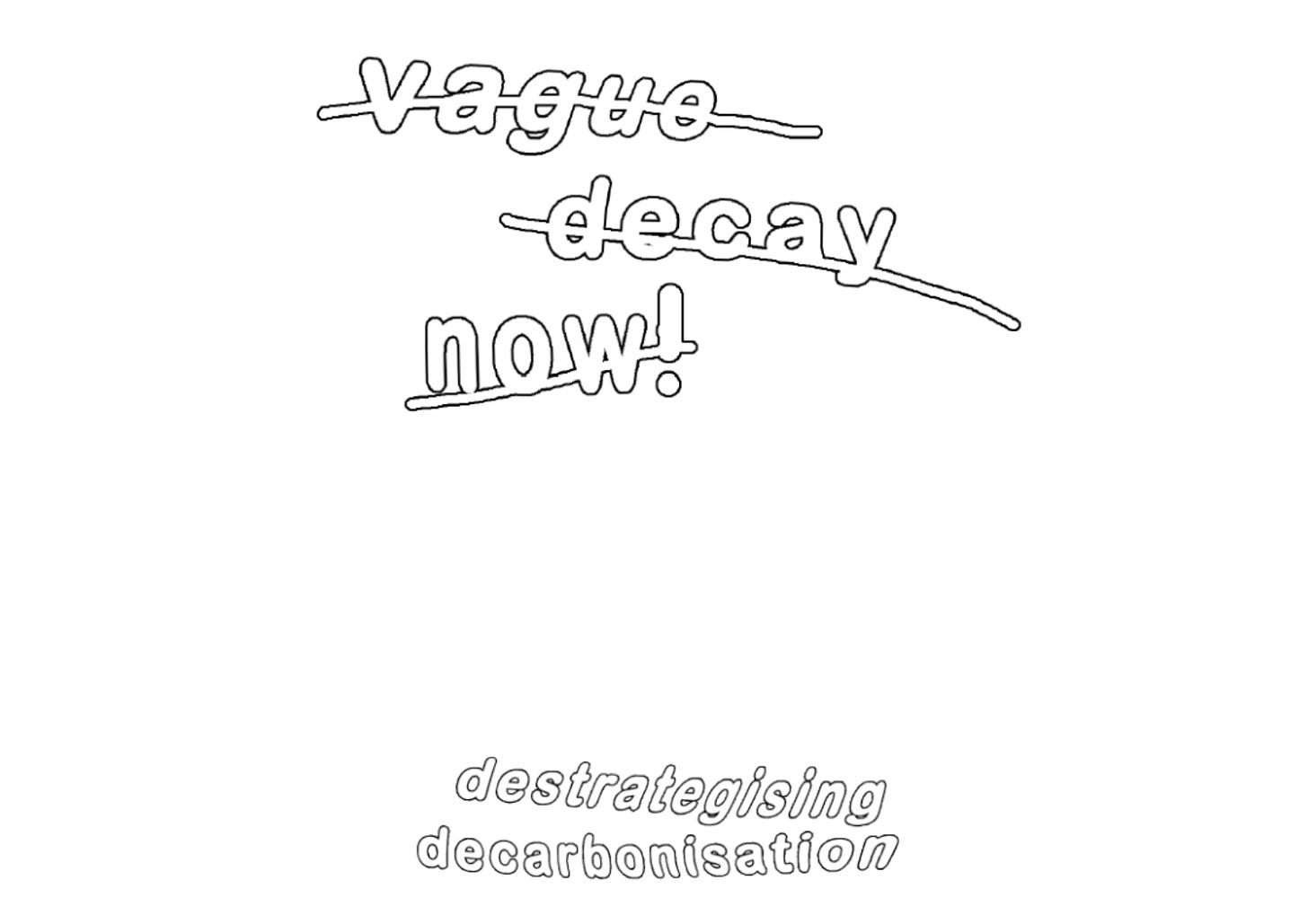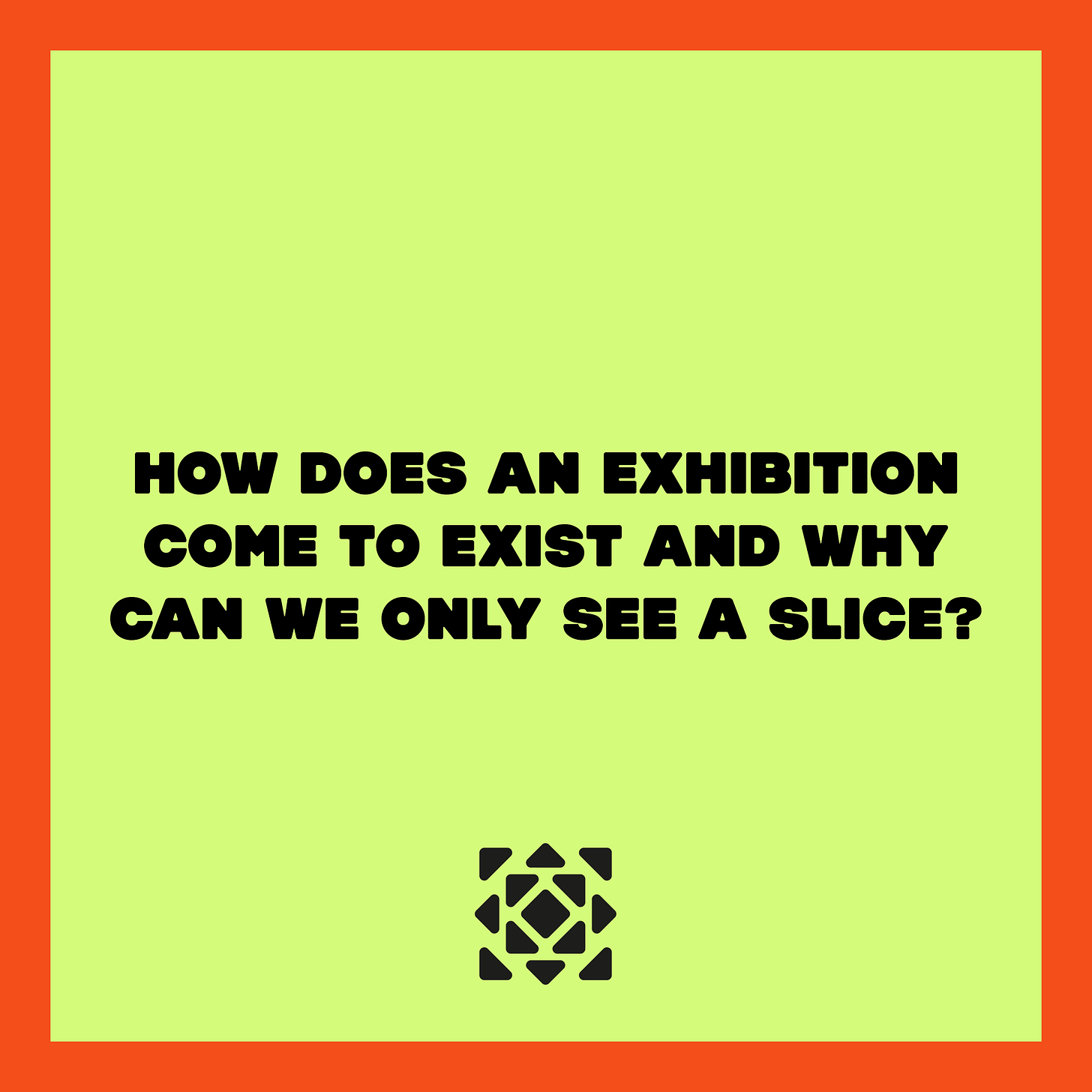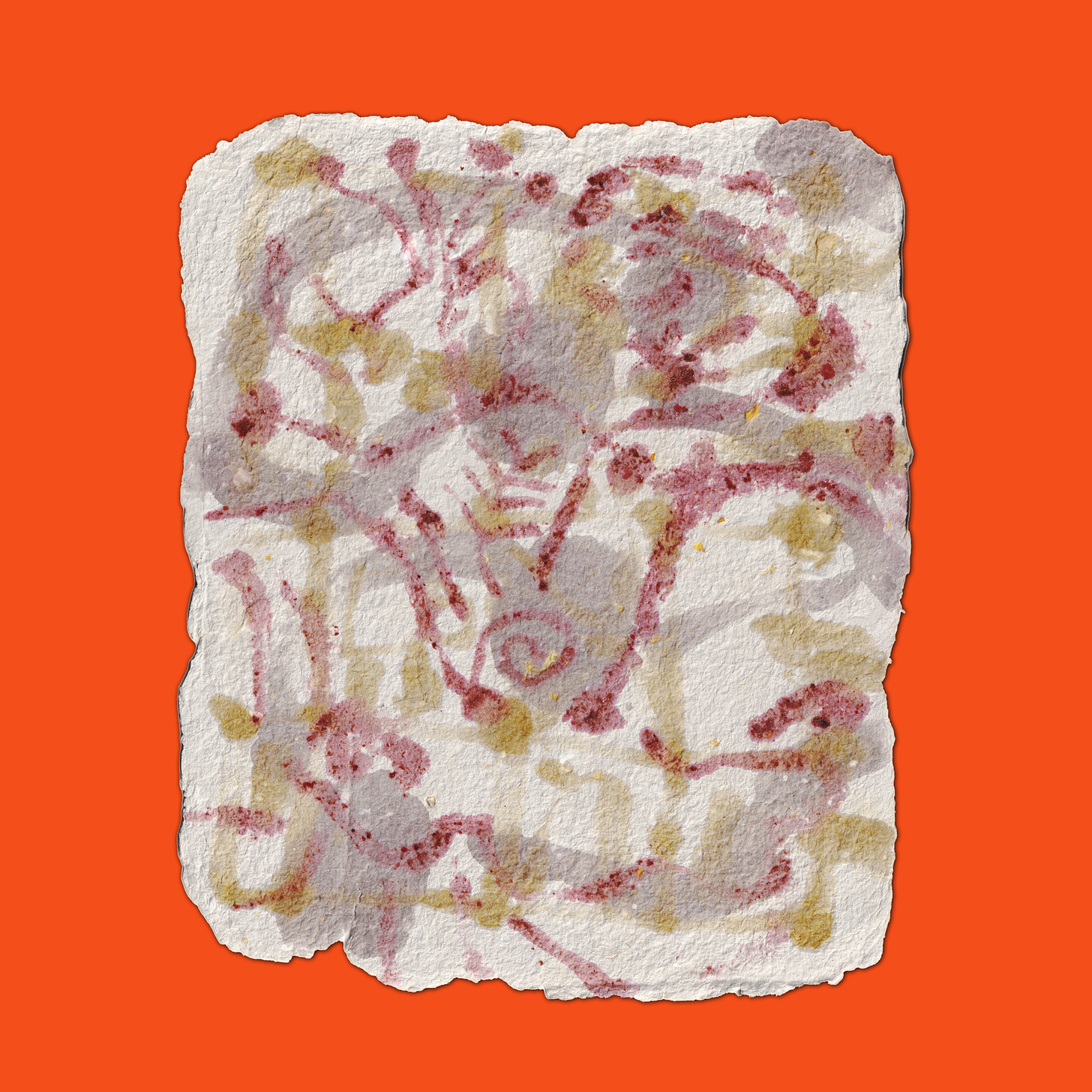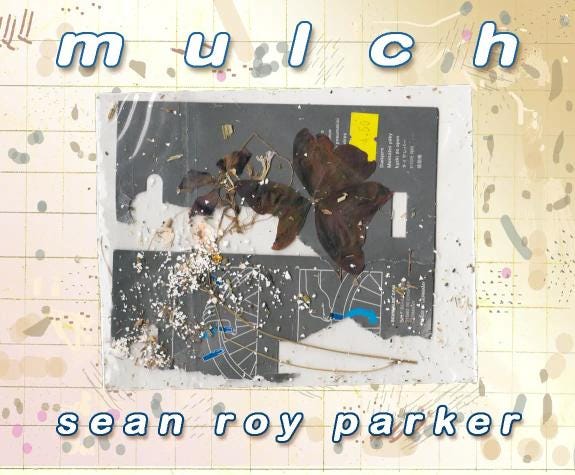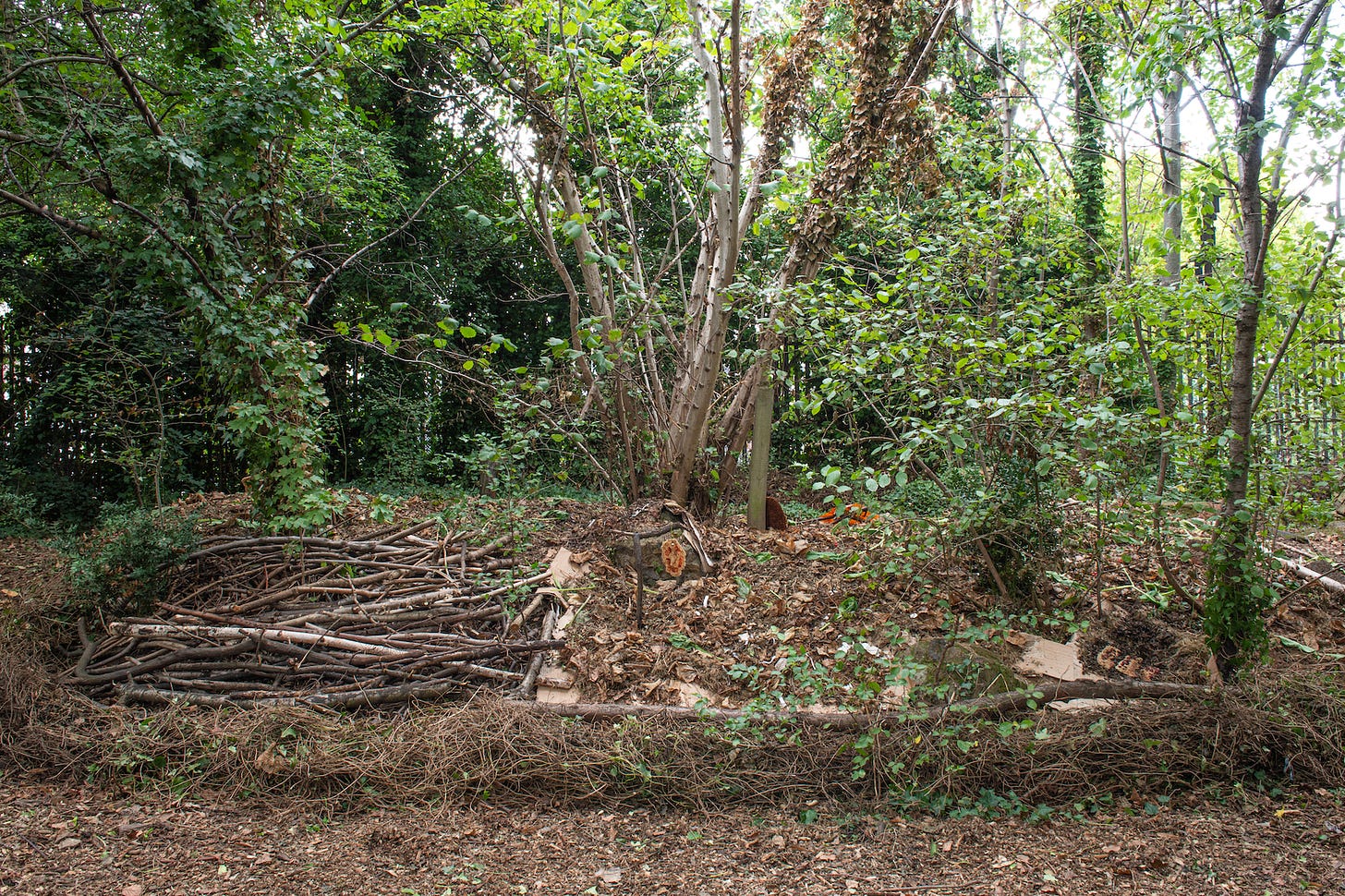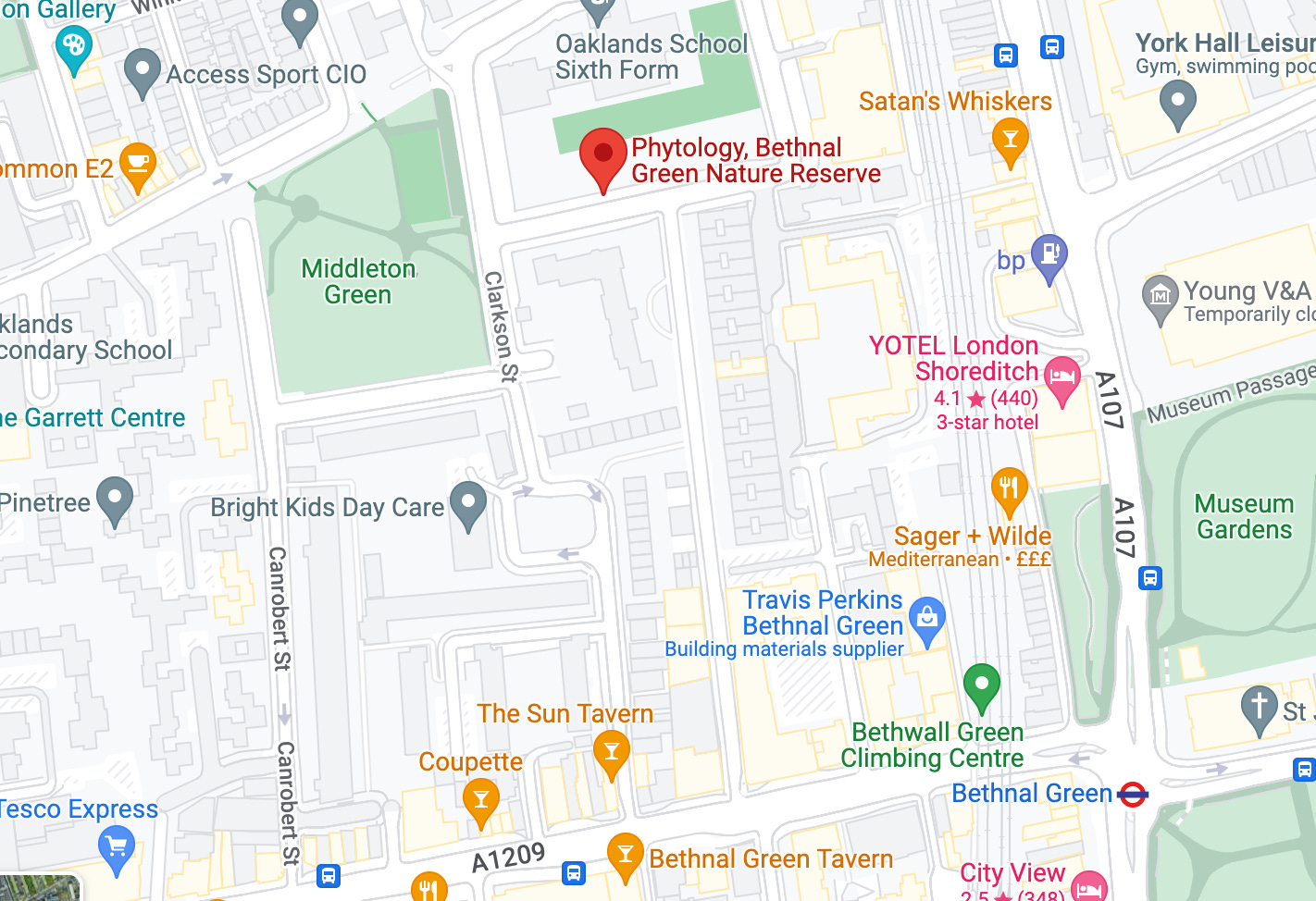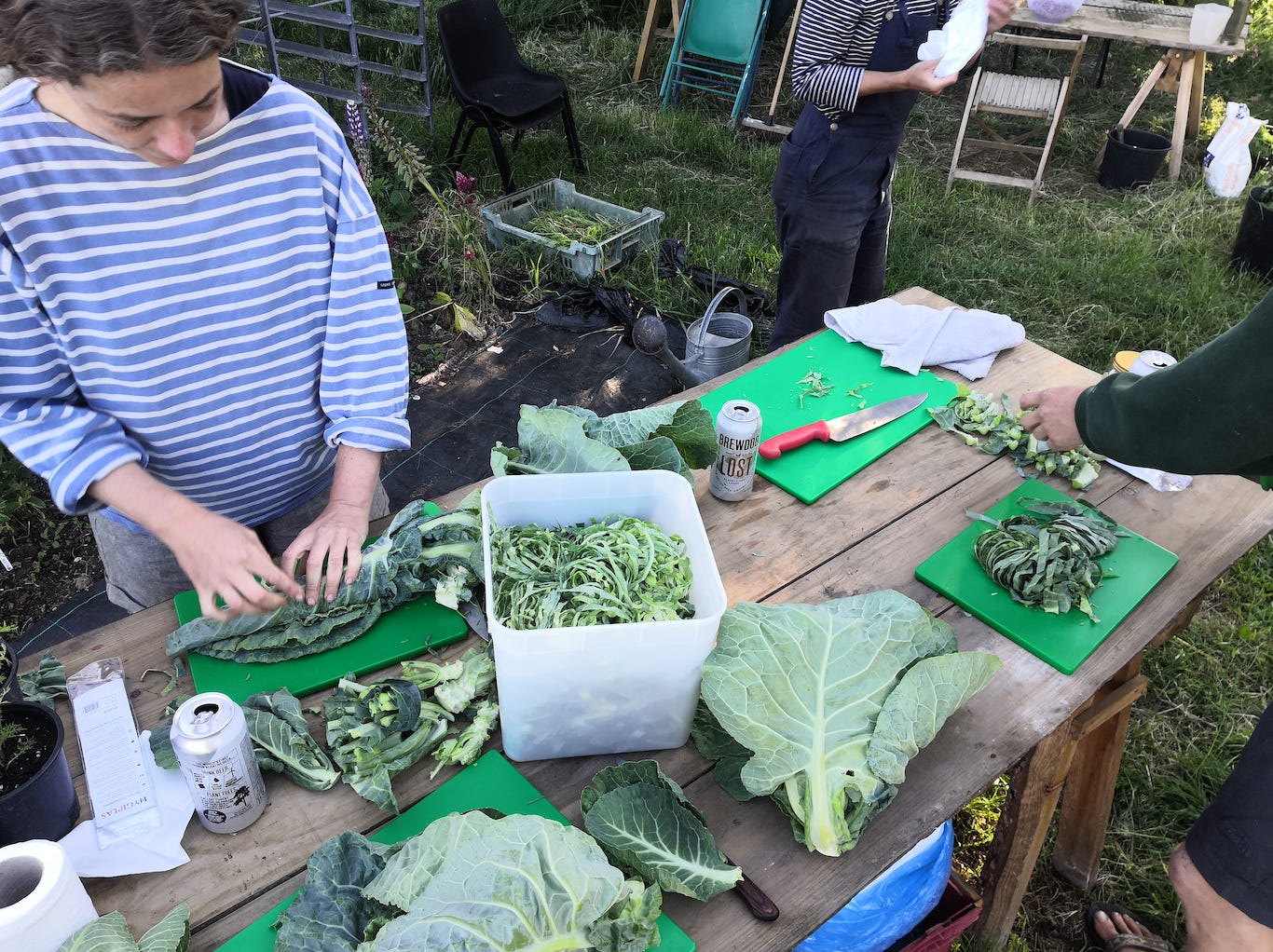The journal entry is followed by a round-up of recent projects. Please consider becoming a paid subscriber for the price of a pint in Huddersfield.
Wed 28 Sep
As the swoop of seasonal change reminds us that time is never a straight line, I’m turning my attention to the abundance of wild food, herbs and art materials available at this time of year. Early autumn is increasingly becoming ‘second spring’ with all the new green growth and flowers in addition to the customary fruits, berries, nuts and seeds, but it’s easy to both ignore this bounty and take it for granted. We must be clear that the warming of the Earth’s atmosphere and increasingly frequent freak weather are caused by extractivist capitalism and the unequal distribution of resources that will negatively impact those least responsible and often already marginalised.
Sometimes it feel like we are hurtling through life, which is partly because we spend too much of our waking days working and not enough looking, touching, hugging. A lack of contact with each other and the web of ecology leads to organic imbalance and emotional dislocation. Of course, being time-poor is also an enforced (and therefore false) scarcity; having access to our basic needs always held just out of reach by those who are suppose to ensure them. We are paid off for obedience, reimbursed for inertia.
Within the unwritten contract of neoliberal society, there must be a clause that, first and foremost, humans are educated to be good consumers and cultured to accept it wholly. I have been writing about my journey towards material decommodification for over two years, in the form of essays, journals and, more recently, poetry. I never set out to provide answers or solve problems, merely to question my own relationship with the things I buy or desire, perhaps most significantly food. I am trying to become a bad consumer by doing, making and needing less. It’s clear to me that the only way to change the world as an individual is to change yourself first and, although it’s nothing new, it certainly has helped me reshape my own life.
In trying to leave my co-dependent relationship with consumerism, rather than choosing this or that, I will choose neither or nothing at all. I have bolstered the shift of priorities towards my own mental and physical wellbeing by diminishing my need to buy, and therefore, across the longer term, my need to work so much. It helps that I currently have time and space and quiet at DARP like I have never before experienced, and rather than the hyperproductivity I was planning I have centred slowness.
Slowness to me in part means finding, growing, cooking, sharing, preserving food. From foraging to fermenting to arranging house meals, this intentional nourishment has become daily work. I also co-organise the communal pantry which is stocked with bulk wholefoods and surplus fresh produce donated by the local organic farm. I understand how lucky we are to receive this and although it does feel unrealistic that it could happen everywhere, the point is that is has been made possible through dreaming of alternatives to the entrenched hegemony, and actively self-organising towards a way that works for us as a group.
The other main shift in my life has been processing the move away from making art against things –depression, capitalism, urbanisation– and towards things –mindfulness, self-sufficiency, interspecies intimacy– and it’s still ongoing. Although some of my favourite and most popular work was made when I was in the darkest place (‘Interspecies Reality’ has been translated into German, for example), ultimately I ended up feeling that charging my body with negative energy and forcing out positive work relied on a mammoth machinic effort from my body and mind. I was able to do it for a long time, both in my personal practice and for paid commissions, but it became apparent very quickly once I left London that I would struggle to keep it up, and that perhaps I didn’t need to.
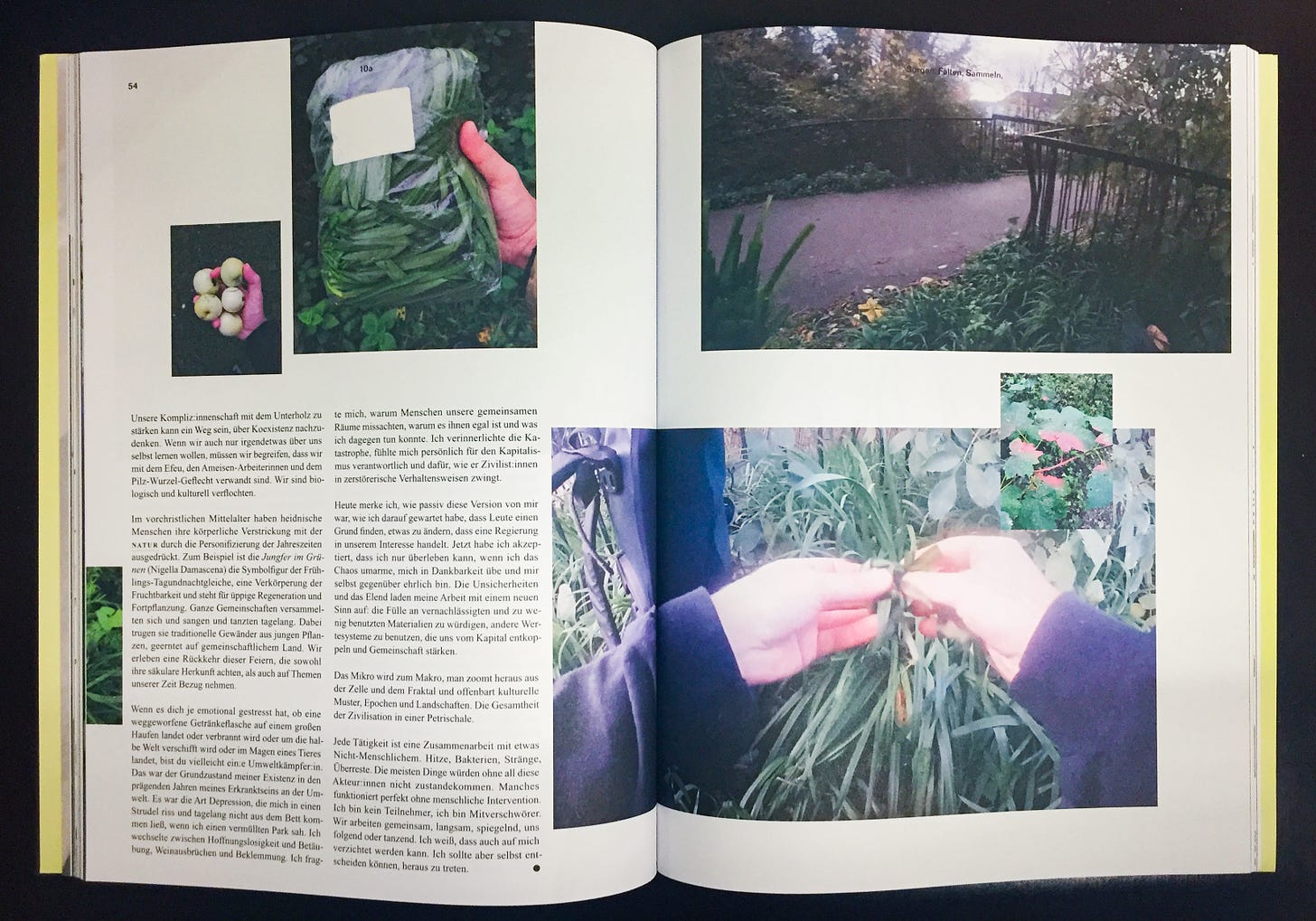
Now for professional news:
Vague Decay Now! Destrategising Decarbonisation - essay now live
Pleased to share a new text commissioned by Dani Admiss for her brilliant project Sunlight Doesn’t Need a Pipeline, with illustrations by Lauren Doughty.
I’ve been thinking about this for about two years and feeling super grateful to Dani for pulling it out of me and editing courageously. I challenged Lauren to make inks from debris I posted her and paper from old studio work, which she smashed.
Apparently, it’s a “stirring, speculative text exploring the dematerialisation of art production”, which “draws our attention to the hypocrisy of infinite material extraction which relies on oppressive labour chains and glaring examples of establishment greenwashing.” Plus I ask: Why does art need to exist indefinitely when we don’t have a forever secured?
You can read / download the essay here:
***https://bit.ly/3r9feG6***
Currently rotting in Bethnal Green
My first solo presentation in London is perhaps unsurprisingly a five metre long compost bed. Michael at Phytology was very open to me taking on a patch of exposed dirt in the unmanaged forest and beginning a process of organic, cultural and emotional enrichment that will hopefully, over time, remediate the soil currently replete with lead from bombs and church windows. I managed to lay down 16 layers in 6 days, and ecologist and volunteers on the site will continue to add matter to the pile in perpetuity, as materials arise, arrive or fall.
LAST WEEK TO SEE! Thurs 29 Sep, Sat 1 Oct & Sun 2 Oct, 1-6pm
Visitors are encouraged to bring something to add to the mulch: tea bags, coffee grounds, receipts, old written notes, drawings or sheet music, love letters, vegetable peels, bills you won’t pay, fresh herbs, dead flowers and any other organic matter to help enrich the soil.
Info
“mulch is a new living installation by artist, writer and gardener Sean Roy Parker created in, with and for plants at Phytology, a cultural institute at Bethnal Green Nature Reserve.
Working amongst the ruins of a former market garden, Victorian church and bombsite rubble, Parker is reanimating layers of dirt, stories and history with the debris of a chaotic summer, relics of soft seasonal change, and a sculptural gift to the future.
Sheet composting, also known as a lasagne bed, is an indigenous horticulture technique (appropriated by Western permaculture) of building soil health with strata of fresh and dried organic matter that rot down over time and provide habitats for funghi, microbes and insects that aid decomposition, releasing nutrients into the soil to complete a short yet dynamic life cycle and replenish the ground ready for new life.
Tree limbs, municipal leaf litter, harvested rainfall, neighbourhood coffee grounds, donated woodchip, deep time journalling, second-hand breath, herbal offcasts, veg market surplus, gallery guides, deciduous needles.
If successful composting requires organic media which contribute varied textures, weights and porosities, then it can only be enhanced by cultural media which hold varied knowledge, care and intentions. Globally, our soils have been rampantly dilapidated by extractivist monoculture farming, and mulch suggests that we can break the curse with slow, purposeful fermentation and interspecies intimacy.”
***
Phytology at Bethnal Green Nature Reserve, Middleton St, Bethnal Green, London E2 9RR
This event was commissioned by Laura Yuile for Museum of Modern Shopping, supported by Arts Council England.
Fermental Health: Transforming Abundance
I’m about to embark on the R&D stage of a multi-part fermenting masterclass for community cooks and social foodworkers at Primary in Nottingham, using the Smallfood Bakery as a live laboratory. This project will form a central pillar to Primary’s Nourishment Autumn Season, the latest leg of “a long-term programme that delves into food justice, nourishment, growing and sustainable food systems”, organised by Rebecca Beinart with support from Chloe Willis.
I am excited to create a course around my open-ended fermentation practice, make cooks more comfortable with gluts and help implement these traditional techniques into already-existing kitchens.
*****
This four-session practical workshop is a chance for those already working with food and people in the Radford area of Nottingham to explore the art of fermentation and harness the power of interspecies collaboration. We will work with surplus bulk ingredients such as fruit and vegetables to make large batches of fermented, pickled and preserved food and get cosy with the lifeforms that make it happen. All produce will be distributed back out to local food projects.
Over the sessions we will deal with breaking down surpluses without waste, improving shared knowledge of diet diversification and digestion, and explore creative interpretations of ancient techniques using culturally-appropriate ingredients. We will meet with masterchef microbes, feast with wild yeasts, and find new flavours with fungi, building towards a community day where we process, jar, discuss and share our creations.
Alongside the practical aspects, Sean Roy will discuss low-carbon cooking with microbes, instigate ways to organise in community kitchens, and reach for deeper collective understanding of food justice. How do we fix our broken food system and what will our fair society look like? What can understanding bacteria better bring to the kitchen? Can we relinquish control and embrace the chaos of abundance?
*****




